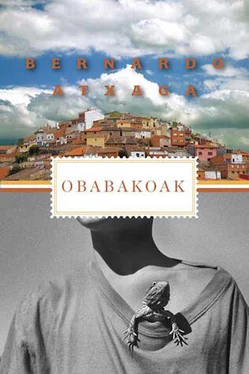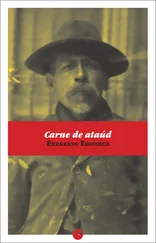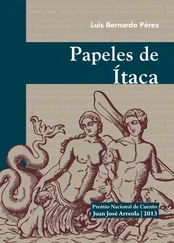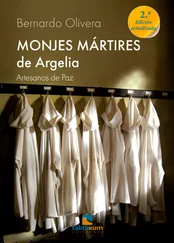Bernardo Atxaga - Obabakoak
Здесь есть возможность читать онлайн «Bernardo Atxaga - Obabakoak» весь текст электронной книги совершенно бесплатно (целиком полную версию без сокращений). В некоторых случаях можно слушать аудио, скачать через торрент в формате fb2 и присутствует краткое содержание. Год выпуска: 2010, Издательство: Graywolf Press, Жанр: Современная проза, на английском языке. Описание произведения, (предисловие) а так же отзывы посетителей доступны на портале библиотеки ЛибКат.
- Название:Obabakoak
- Автор:
- Издательство:Graywolf Press
- Жанр:
- Год:2010
- ISBN:нет данных
- Рейтинг книги:3 / 5. Голосов: 1
-
Избранное:Добавить в избранное
- Отзывы:
-
Ваша оценка:
- 60
- 1
- 2
- 3
- 4
- 5
Obabakoak: краткое содержание, описание и аннотация
Предлагаем к чтению аннотацию, описание, краткое содержание или предисловие (зависит от того, что написал сам автор книги «Obabakoak»). Если вы не нашли необходимую информацию о книге — напишите в комментариях, мы постараемся отыскать её.
Obabakoak
The Observer
Obabakoak — читать онлайн бесплатно полную книгу (весь текст) целиком
Ниже представлен текст книги, разбитый по страницам. Система сохранения места последней прочитанной страницы, позволяет с удобством читать онлайн бесплатно книгу «Obabakoak», без необходимости каждый раз заново искать на чём Вы остановились. Поставьте закладку, и сможете в любой момент перейти на страницу, на которой закончили чтение.
Интервал:
Закладка:
Such a conclusion is not only surprising, it’s also flattering to those still living in the village. Everyone cheers up, they all want to talk about it. When they’d least expected it, life has given them a pleasant surprise and in bar and shop conversations are no longer limited to the usual subjects, to the family, to hunting, and to work. Just by his presence, the stranger gives rise to the most diverse conjectures and suppositions. And later, whenever the opportunity arises, everyone will attempt to get into conversation with him, eager to find out just how much truth there is in their imaginings. Is it true that he likes Villamediana? Why? Because of the landscape? He wouldn’t by any chance be trying to forget some unhappy love affair, would he?
Given this situation, the stranger has no option but to spread himself around. He’ll be obliged to talk to everyone and to accept every invitation to go down to the bar for a glass of wine. And though spending all day walking from one part of the village to another will wear him out, he’ll willingly carry out the task he’s been set, because he too is astonished by the warmth of their reception, because he too is curious to find out what they are like, these country folk and shepherds who suddenly, from one day to the next, have become part of his life. He also knows that the situation will change after the first few days, and that, once he ceases to be a novelty, he’ll soon come to be seen as just another village resident. And the prospect of a life without complications cheers him: just two or three friends, the odd meal out, long walks, and lots of reading, that’s all he needs in order to live well.
However, starting up new relationships nearly always gives rise to some misunderstanding. You start chatting to someone with no other intention than that of passing the time pleasantly and exchanging a few anecdotes. But what if that person wants something more and tries to obtain or even demand that something more? Given that the newcomer speaks to everyone and opens the door of his house to all and sundry, extricating himself from this predicament may prove difficult.
The stranger soon comes to regret the attitude he adopted when he first arrived, because he genuinely dislikes the one person to interpret his behavior as a sure sign of real friendship. A week goes by and he can find no way back; he doesn’t know how to close the door he opened. And it seems to him he’s made the same mistake he always makes, it seems that if the fault is in oneself, a change of address can resolve nothing; he fears that perhaps he’s ruined the peace he’d hoped to find in Villamediana.
One person in the village did misinterpret my kindness: my neighbor, Onofre. When I arrived there he was getting on for sixty, and, having been widowed very early on, he lived alone with his youngest son, a surly, grim-faced youth with an evil reputation among the other village youngsters. Since we lived right opposite each other and given the climate of affection that reigned at the beginning of my stay there, it was inevitable that I would have more to do with him than with anyone else. For example, it was from him that I gleaned my first facts about the village, concrete facts as well as tattletales: how many acres the forest bordering the plateau covered; when the feast day of the place known as Valdesalce was held; how many soldiers there were in the signals barracks perched on the hill you could see from the main road.
Onofre was not the kind of man who, on becoming a widower, undergoes a radical change in ideas and adapts to doing all the housework for himself. He still considered preparing meals or sweeping the rooms to be tasks unworthy of a man, a view, it should be said, that was fairly widespread in Villamediana society. I can still see the look of astonishment on the face of one little boy of five or six when he saw me bustling about in the kitchen surrounded by cooking pots: “That’s girl’s work you’re doing!” he said quite spontaneously, a comment that made me laugh but at the same time somewhat unnerved me. I immediately imagined myself being pursued around the village by children, amid accusing cries of: Sissy! Sissy!
With no woman to look after him and with no desire or need to look after himself, my neighbor had plumbed the lower depths of squalor. He was perennially dirty and had gotten into the habit of eating constantly. Whenever he talked to me, I could actually see the food he was eating, chewed to a pulp, being churned around among his nicotine-stained teeth, and my face and neck would get spattered by any random fragments that escaped from his mouth. I found it most disagreeable and had to make a real effort of will not to turn on my heel and simply remove myself from his presence. An even greater effort of will was required when he offered me the very bottle of wine from which his own greasy lips had just supped or when he bade me sit down amid the eternal grime of his kitchen.
But the squalor was not restricted to the domains of his person and his home. His words were squalid too. One day he’d point to the shepherds’ house and, as I described before, take enormous delight in vilifying the women living there, on another he’d pillory the owner of the local tavern, accusing him of having got rich on the proceeds of smuggling, or else he’d inveigh against the shopkeeper in the square, warning me never to buy anything from his shop because of the astronomical markup on all the goods. Like all gossips, he was also a coward, and he addressed these confidences to me in an undertone, in a whisper, lest the wind carry his words to the ears of whoever it was he’d just defamed.
Despite all this, what one noticed first about the man was not the filth but the beauty of his eyes. He had the blue, luminous eyes of a heretic, a visionary.
One day, just to pull his leg, I said to him: “Can you remember being burned at the stake, Onofre?”
“When?”
“In the Middle Ages, when else?”
“Oh, drink your wine and shut up,” he replied, passing me the bottle. That was his favorite riposte, perfect for dealing with stupid questions.
However, the beauty of his eyes was not sufficient consolation and I did everything I could to reduce contact with him to a minimum. My front door remained firmly shut and I’d go out only when I knew he was taking his afternoon nap, and, if he asked me to join him in a game of cards, I’d claim not to know how to play.
But it was all in vain. More than anything else and whatever the cost, Onofre wanted to be my friend and never missed a chance to proclaim the good news of our friendship to the village at large.
“We’re the best of friends, we are,” he’d declare to anyone walking down our street on their way to one of the bars and then turn to me for immediate confirmation of what he’d said.
“Isn’t that right? Wouldn’t you say so? Bosom pals we are.”
I, of course, had no alternative but to concur.
More than that, he wanted me all to himself and used all the wiles of a jealous girlfriend to achieve this end. He’d follow me everywhere, interrupting my conversations with the shopkeeper, sulking whenever I asked a favor of someone else in the village.
He’d walk into my house, wearing a hurt expression, and say: “I hear you asked Daniel for firewood,” adding: “My firewood’s every bit as good as his, you know.”
Then, depositing a bundle of his own best firewood by the sitting room door, he’d depart in silence.
As time went on, he felt the need for a theory to explain the origin of our friendship and soon came up with the reason we two had ended up being such friends. The reason I’d come to live there was Luis, the bearded chap who’d rented the house before me. It was through him that I’d found out what a good sort Onofre was.
Читать дальшеИнтервал:
Закладка:
Похожие книги на «Obabakoak»
Представляем Вашему вниманию похожие книги на «Obabakoak» списком для выбора. Мы отобрали схожую по названию и смыслу литературу в надежде предоставить читателям больше вариантов отыскать новые, интересные, ещё непрочитанные произведения.
Обсуждение, отзывы о книге «Obabakoak» и просто собственные мнения читателей. Оставьте ваши комментарии, напишите, что Вы думаете о произведении, его смысле или главных героях. Укажите что конкретно понравилось, а что нет, и почему Вы так считаете.











